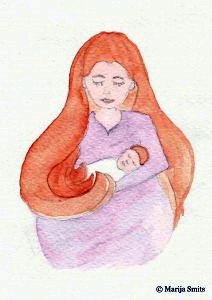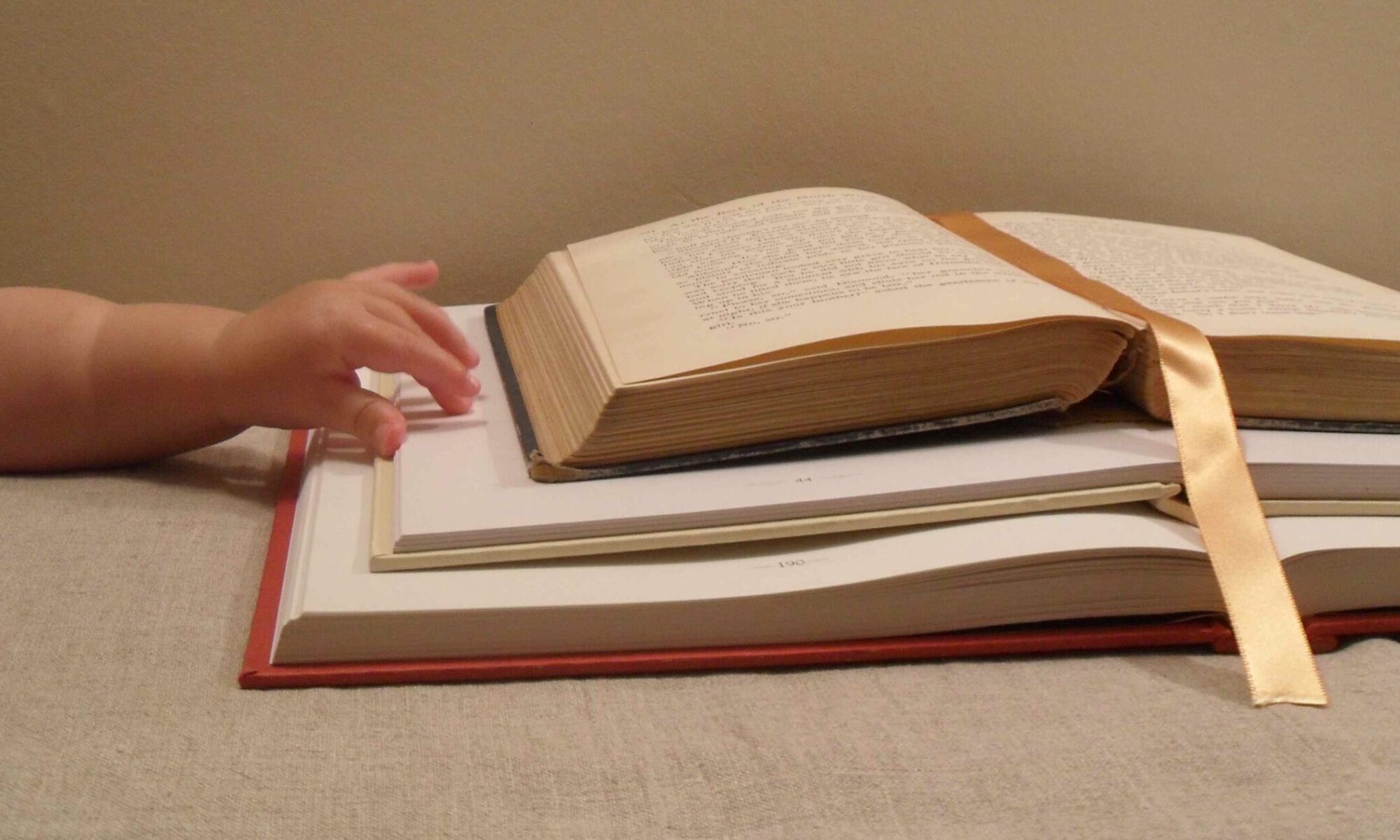Some reflections on the birth of a mother, and what it means to be a mother… by Teika Bellamy
The other day (22/07/2013) my mum called me late in the evening and left a message on my answerphone, “a boy has been born…”. Now I admit I’m not the most news-aware person in the world but even I knew what she was talking about. (My mum, bless her generous heart, is a big fan of the Royals and gifted the Duchess of Cambridge with a copy of Musings on Mothering a while back, but that’s another story…!)
Anyway, I was glad to hear that the Duchess of Cambridge’s son had safely arrived in the world, and as I went to bed that night I couldn’t help but wonder how the new mother (indeed, every new-born mother) was feeling. I looked back to the night, about six years ago, when I gave birth to my own first baby and the strong emotions I experienced after the birth.

I was in hospital and recovering from a post-partum haemorrhage and second-degree tear to my perineum. I was sore but happy; hungry and tired. It was good to have my husband around; it was good to finally meet my baby and hold her in my arms.
The first time I put my daughter to my breast I felt as though I had reached the culmination of womanhood; my womb and placenta had provided for her for the first nine months of her being, now my breasts and arms would continue to keep her well fed and safe.
However, when my husband had to leave the hospital, and it was just my daughter and I together, I couldn’t help but feel a little worried. It was just the two of us now – would we be okay?
I put her in the bedside crib for a moment, bundled in her NHS blanket, and I lay back in my bed and closed my eyes. I wasn’t really expecting to sleep – the lights were still on and there was a lot of background noise in this strange, clinical place, but I was tired. I must have dozed a little, because I very clearly remember being jolted awake and immediately, instinctively, looking to my baby. She appeared to be completely still, not breathing, and my heart almost burst with fear. My hands flew to her chest to find her heartbeat, to make sure that her chest was still moving up and down, and when I knew that she was okay – simply asleep and peaceful – I cried. This was the moment I really knew what it was to be a mother: for the rest of my life I would know joy, pure, wonderful joy in being a mother to my children, but also the fear, the very primal fear of knowing that something might happen to them.
Mothers throughout the world live with these two powerful emotions every day. We long to make sure that our children are well fed and safe, and sometimes, in the early days our fears for their safety may seem overwhelming. Certainly, our anxieties about them being well fed are common, particularly in the west. It can be of great solace to a breastfeeding mother to meet with other breastfeeding mothers to discuss weight gain concerns in the early days. Speaking with a counsellor from a breastfeeding support charity like La Leche League can be invaluable too, especially for a mother who needs some reassurance and good information about how often to feed in the early days and weeks.
I still remember how it took many months, years even, for my fear for my daughter’s safety to ease off. Even now, I like to go to my children’s beds and stroke their heads when they’re fast asleep. It’s an extra way for me to re-connect with them – to again check that they’re okay – when we’ve been extra busy during the day.
Obviously, as our children get older our fears for their safety lessen, although of course they can be replaced by other, new and perhaps more complicated fears.
Just the other day, I lost sight of both my children in the school playground. I thought perhaps they’d walked home together already (we only live about a minute’s walk away from the school) so I rushed out of the school gates and down the road to find them… but they weren’t there. I ran back to the school (ultra-aware that I was the only parent there without a child – my heart almost bursting with fear again) and then I spotted them. Tears came to my eyes as relief at finding them washed over me.
This is the mother-burden: the fear that allies itself with joy, and no amount of money, possessions or status can remove it from a mother’s heart. Yet this is what it is to be human: to know our own mortality. Sometimes our fears are irrational, sometimes they are very real and rational; they are nearly always a useful way to connect with our inner voice, which can swiftly impel us to make necessary adjustments to our everyday lives so that fear can be avoided for future scenarios.
It would certainly be less of a burden to not feel fear for and on our children’s behalf, yet let us not forget that fear is a powerful – and sometimes urgent – reminder of how much we love and value our children. And I firmly believe that our ability to love unconditionally is our strength.
